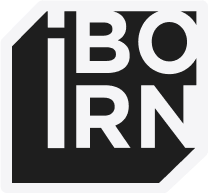We’re witnessing serious changes in the healthcare industry thanks to information technology. Of course, this is not to undermine the other important changes that are also happening in medicine, but here we’re focusing on technology and how it is transforming the healthcare industry. In particular, we’re going to discuss how software development has impacted medical and hospital management.
Medical and hospital management is mainly associated with the patient care cycle. This cycle begins at the moment when a patient is registered at the health facility and lasts throughout the process of consultations, check-ups, procedures or in one word – medical care. The patient’s clinical history is a written record of that care.
This is where the need for a medical and hospital management system appears since health care records are not kept in the same way and in most cases, are only kept on paper.
Towards a unified Medical and Hospital Management System
The challenge is to improve health information models that would essentially lead towards a Unique Clinical History, supported by international Data Architecture standards.
It is possible to have a Medical and Hospital Management System that complies with these standards and that allows generating statistical information from the patient's medical care cycle, in order to improve the development and planning of health care programs.

Government health institutions are geared towards improving patient care procedures, so a system of this nature serves this purpose. In the case of private institutions, the importance is focused on recording the use of medical services and products by their patients.
Health Information Systems (HIS)
Despite the two major differences between the private and the public sector, medical professionals in both sectors understand the need for a unique clinical history to streamline and optimize health care services and record all patient care procedures.
Evolved isolated systems for laboratory control, clinical analysis, and hospital administrative systems are possible thanks to the new generation of comprehensive health systems better known as HIS, for (Health Information Systems).

The technology allows doctors and patients to have a closer relationship, facilitates access to medical records, improves care and helps increase the patients’ commitment to their health.
The automation of processes and procedures allows centralized storage, optimizing times and facilitating queries.
Benefits of medical and hospital management software
Let’s have a more detailed look at the benefits of software development in medical and hospital management:
High-quality patient care: Imagine the possibility of having a unique clinical history as an integrated electronic file. This means that all medical care that you’ve received throughout your life will be neatly recorded and kept in one simple file. Now imagine that this unique clinical history can be shared between different health care entities (both public and private). Everything would be simpler, right?
Advanced diagnosis: The software development and technology, in general, have the power to revamp the healthcare industry to provide efficient operations management and, at the same time, advanced diagnosis.

Data security: The big data that the healthcare sector generates on a daily basis is very sensitive and its security is a serious concern. That’s why most software platforms for medical and hospital management are getting HIPAA compliant in order to offer maximum data security.
Multiplatform and integrated system: The custom-tailored software is normally developed to work across different platforms (desktop, mobile, tablets) and it integrates multiple workflows on a daily basis. All that entails that it can synchronize multiple processes such as HR, finance, OPD, etc. That enables medical professionals to allocate more of their working hours to provide medical services, which in turn can increase patient satisfaction and healthcare quality.
The technology improves the medicine development process, improves the process of disease diagnosis, secures sensitive data in the cloud, and gives advanced recovery solutions by providing cognitive data analysis. Moreover, it improves the healthcare model which is essential for the overall growth of the medical sector in every country and globally.
We at IBORN can redesign and optimize every health process, we offer consulting on the implementation of ICT in the health industry. Our engineers are trained to offer clients solutions that meet their demands and to provide the most suitable solutions based on the structure and purpose of the particular medical center or institution.



